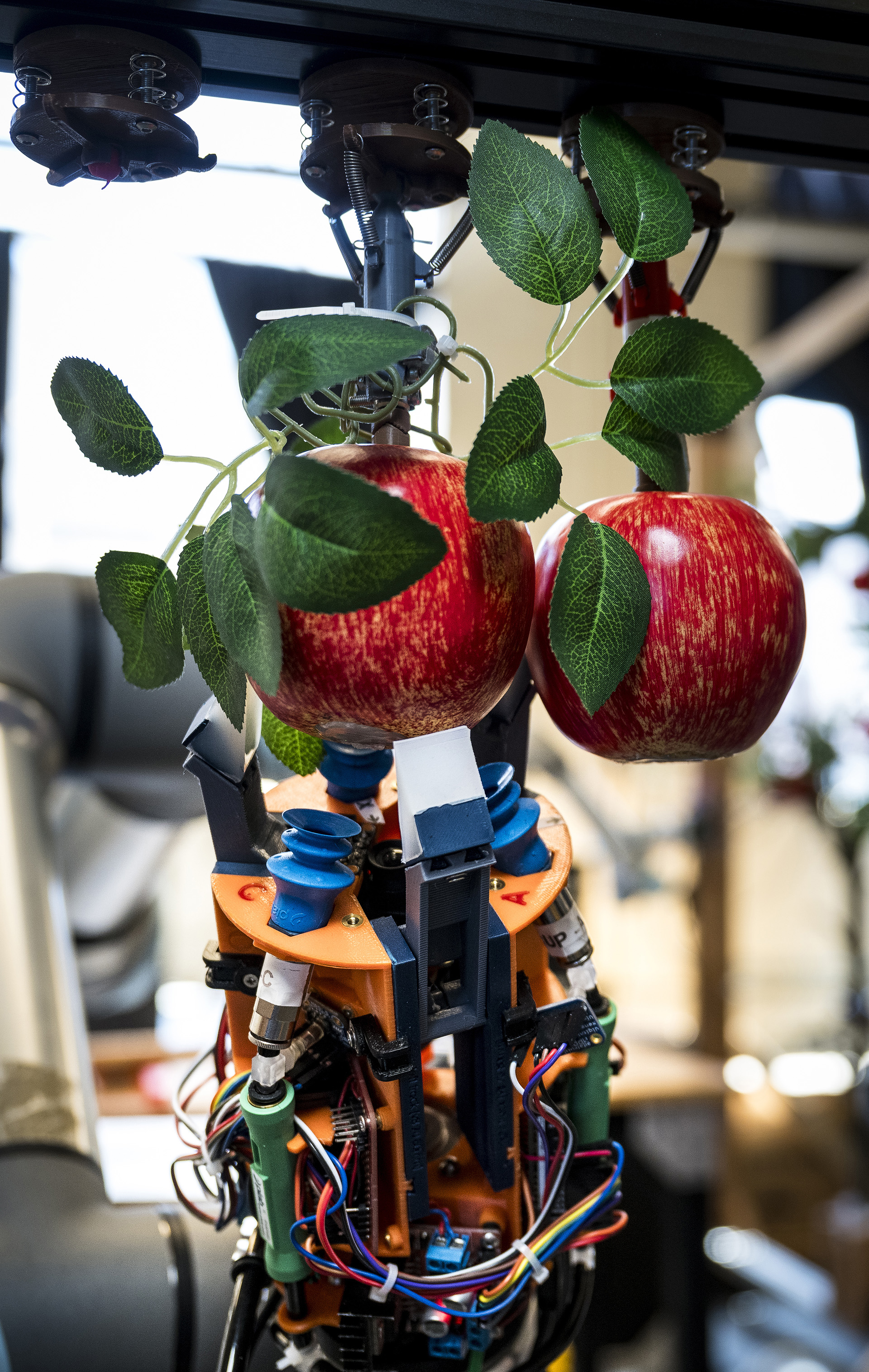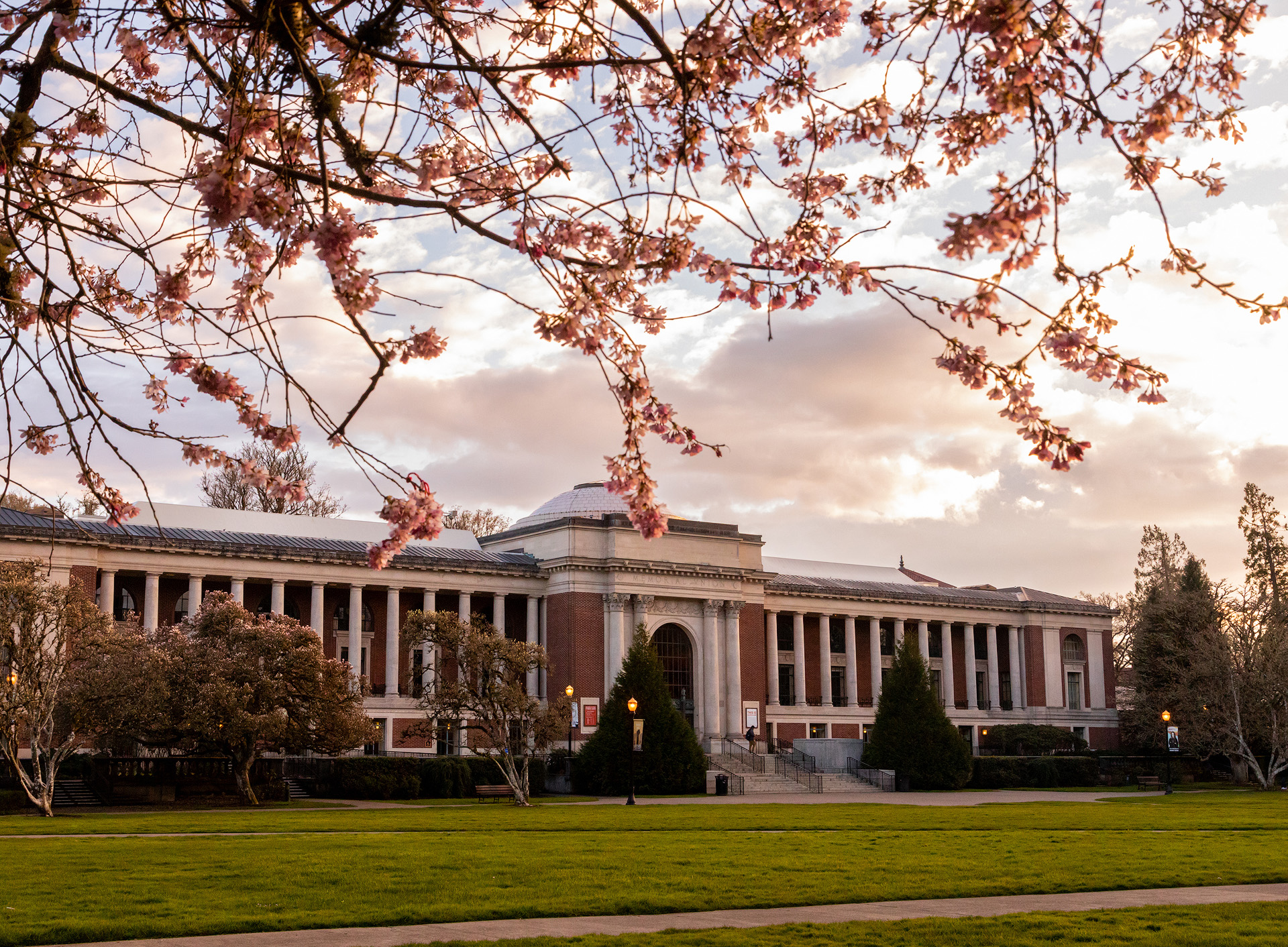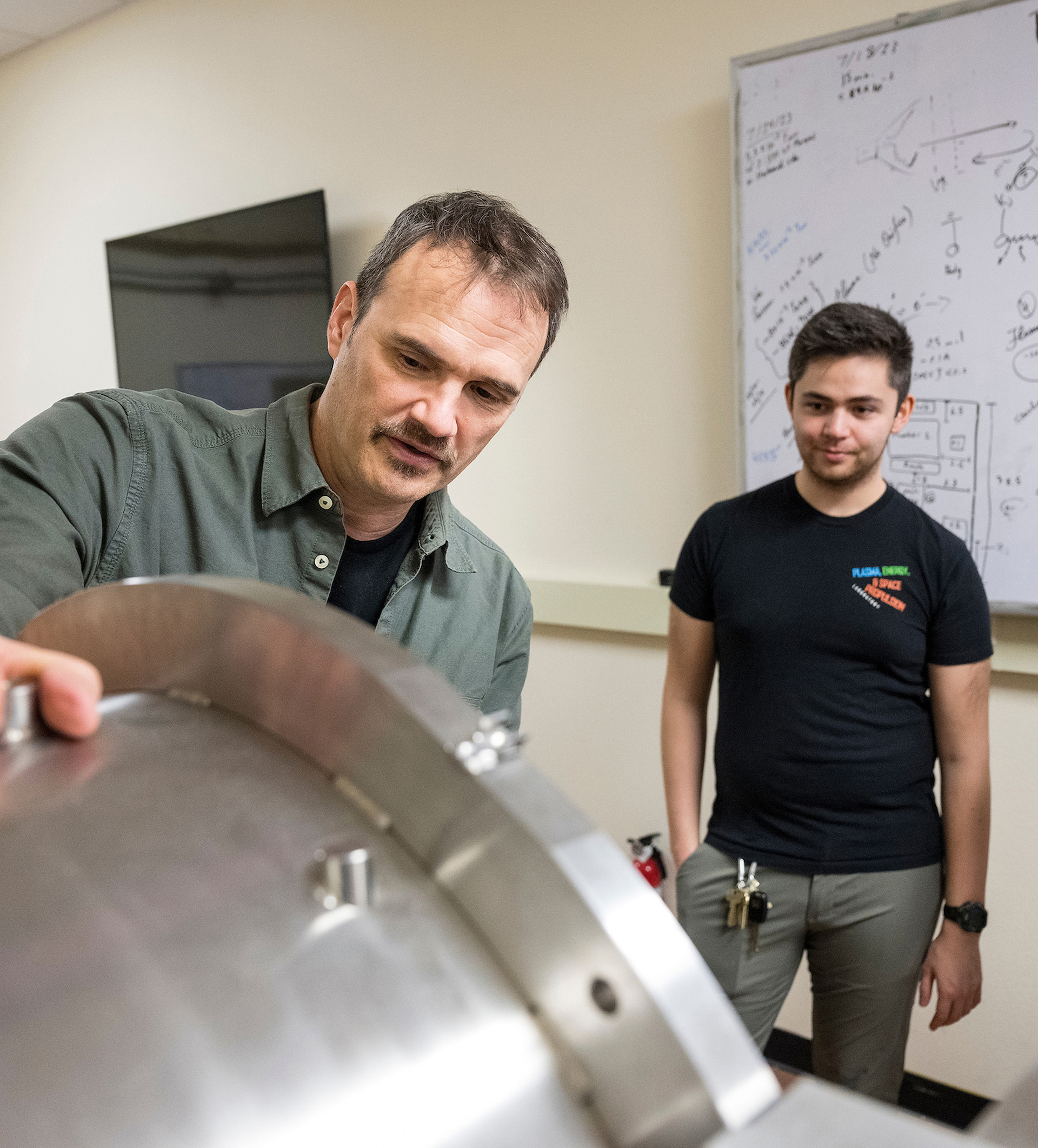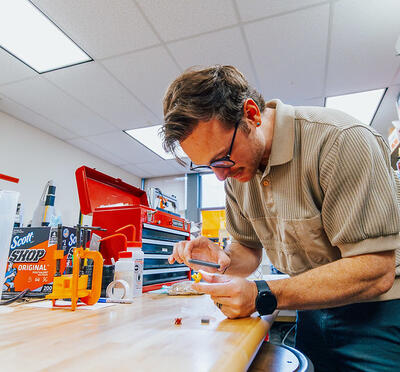Mechanical Engineering
Where beavers learn to build

One of engineering's most versatile disciplines
Mechanical engineering involves the design, analysis, and manufacture of mechanical systems, as well as the creation of new materials. By advancing technology in many industries, including automotive, aerospace, energy, healthcare, automation, and more, mechanical engineers are solving some of society’s most challenging problems.
Oregon State's record of success attracts world-class faculty who have achieved global prominence in signature research areas, such as advanced manufacturing, materials science, industrial and systems design, sustainable energy, robotics, and thermal-fluid science. Our highly collaborative environment also benefits students who are inspired to solve real-world challenges.
Degree Types
Locations
Corvallis
Cascades
Online
Our Faculty
Explore our faculty's expertise and research.
Contact our industry relations team to discuss partnerships and other opportunities.
Cutting-edge research
We create a safer, smarter, more resilient world through major contributions to fields that range from advanced manufacturing, materials science, sustainable energy, aerospace, and robotics.
Advanced Manufacturing
Developing advanced technologies to manufacture new and existing products
Design Engineering
Using design processes to facilitate the creation of new products and technologies
Thermal-Fluid Science
Engineering the transport of matter and energy from the molecular to megawatt scale
Next Generation Materials and Devices
The use of structural materials, electronic ceramics, energy materials, sensors
Mechanical Engineering Excellence & Discovery

Mechanical engineering touches nearly every facet of our lives
Oregon State researchers have contributed breakthroughs in numerous fields, such as advanced manufacturing, robotics, next-gen materials, and aerospace.
- New methods to improve production of advanced alloys
- Advanced techniques in additive manufacturing
- Breakthroughs in advanced materials for aerospace propulsion and nuclear fusion
- Innovations in robotics controls for real-world applications
- Advanced understanding of energy efficiency and sustainable energy systems


Surviving the extremes
Richard Wirz explores next-gen materials that will withstand the harsh environments of plasma thrusters and fusion reactors.
Degree Types
Locations
Corvallis
Cascades
Online
Our Faculty
Explore our faculty's expertise and research.
Get in Touch
Partnerships
Contact our industry relations team to discuss partnerships and other opportunities.


